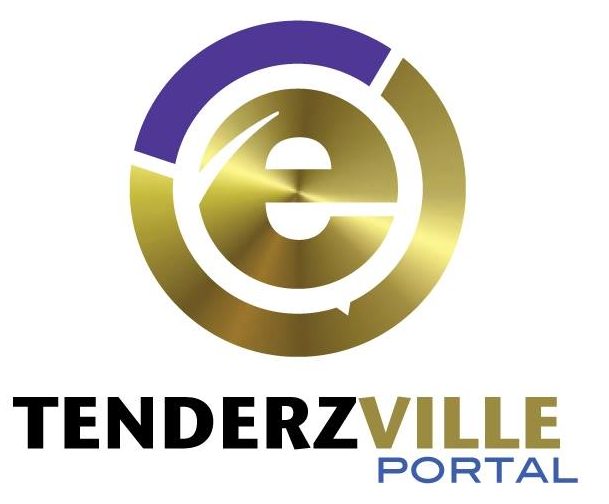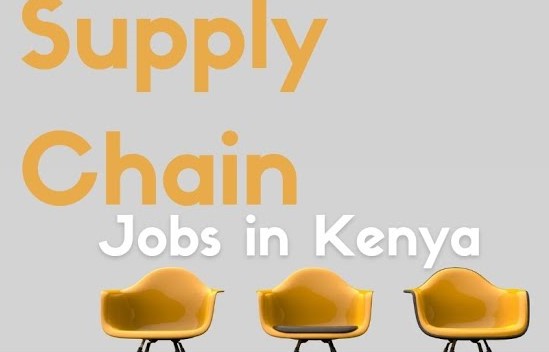Diploma in Supplies Management
What you need to know
In today’s interconnected and fast-paced business world, effective supply chain management is crucial for organizations to thrive. As a result, the demand for skilled professionals in the field of supply chain management is on the rise. If you’re considering a career in this dynamic and in-demand field, taking a diploma course in supplies management in Kenya can be a smart move. This article explores what a diploma in supplies management course entails and the exciting career prospects it can unlock.
What is a Supply Chain Diploma Course?
A supply chain diploma course provides individuals with the knowledge and skills needed to manage the entire flow of goods and services, from procurement to distribution. The curriculum typically covers essential topics such as logistics, inventory management, transportation, procurement, and supply chain strategy.
By enrolling in this diploma course, you will gain a comprehensive understanding of the key principles and practices that drive efficient supply chain operations.
What can I do with a Diploma in supplies management?
Career Opportunities: Completing a supply chain diploma course opens doors to a wide range of career opportunities in both local and international settings. Here are a few potential career paths you can pursue:
Supply Chain Analyst: As a supply chain analyst, you will analyze data, optimizing supply chain processes, and identifying areas for improvement. You’ll play a crucial role in enhancing operational efficiency, reducing costs, and ensuring timely delivery of products and services.
Procurement Specialist: Procurement specialists source and purchase goods and services needed for an organization’s operations. They negotiate with suppliers, manage contracts, and ensure the availability of quality materials at competitive prices.
Logistics Coordinator: Logistics coordinators oversee the movement of goods from suppliers to customers. They manage transportation, warehouse operations, and distribution to ensure timely and efficient delivery. Their role is critical in maintaining a smooth supply chain flow.
Inventory Manager: Inventory managers monitor and control inventory levels to meet customer demand while minimizing carrying costs. They use inventory management systems, conduct forecasting, and implement strategies to optimize inventory performance.
Supply chain tools page !
Operations Manager: Operations managers oversee the entire supply chain process, ensuring seamless coordination between different departments. They are responsible for strategic planning, resource allocation, and process optimization to achieve operational excellence.
What are the qualifications for diploma in Supplies management?
The first question asked, if not one of the most critical, followed by the “damage” or fee, location and course details. Different universities, colleges and institutions offer varying cut-off points. However, I would like us to be rather strategic.
This is by answering this question: What is your game-plan? Or do you just want to have a diploma in supplies or procurement because it has been “sold” as lucrative?
If you want to get into public-procurement, this is what you need to do. Go through the list below and attend classes from any of these accredited centres or if in Nairobi, KISM Towers.
This is because, I solely believe there is a lot of traffic towards public procurement, and to save you time and energy, use the APS-K route.
However, if you appreciate the fact that supply chain is broad, then seek specific courses tailored to your field. For instance, did you know we have health supply chain? The examination body in these cases would be probably be KNEC or the university’s examination body. The debate on the private sector vs public debate is long and controversial. Read it here.
Nevertheless, ensure that you register as a supply chain practitioner at KISM. Read the SPMA legal notice below:
Baseline Requirements
Minimum mean grade of C- (Minus) at KCSE level with at least C- in English/ Kiswahili, D+ Mathematics or Accounting, Commerce, Economic or Business Studies OR ‘A’ level Qualification with at least a subsidiary pass OR Certificate awarded by a recognized exam body or institution of higher learning.
Sneak peek examples
Department Of Educational & Distance Studies, UON
Minimum entry requirements:
KCSE Grade C or above with C- in Mathematics or Commerce or Economics, or Accounts and C- in English or Kiswahili
or a bridging course grade C- in English or Kiswahili or Mathematics from a recognized institution
Or KCE Div II or above with a pass in Mathematics or Commerce, or Accounts and a pass in English or Kiswahili. Or ‘A’ Level Certificate with at least one principal pass
Or The applicant must have a minimum Div. III or KCSE C-plus professional Certificate from recognized Institutions for example Kenya Institute of Management (KIM), National Polytechnics, Bandari College, Kenya Medical Training Centre (KMTC), Kenya National Examination Council (KNEC). Kenya Accounts & Secretarial Examination Board (KASNEB), School of Professional Studies, Kenya School of Monetary Studies, Kenya Institute of Bankers, Kenya Co-operative College, Pitman Secretarial Level 1, University of Nairobi Extra-Mural Courses, or any other relevant certificate that the University may recognize.
Or A University first degree and above in any field from a recognized University.
Or P1, SI Certificate
College of Human Resource Management Diploma in Supply Chain Management
Minimum Entry Requirements KCSE aggregate Grade of C- and above or its equivalent as acceptable Qualification by KNQA Pass in Relevant Certificate Qualification
Course duration: Duration of Programme: Three Modules each 6 months.: 18 Months
Examination body: KNEC
Certifying body: KNEC
Diploma In Supply Chain Management (APS – K) | KISEB
The Total Qualification Time is 2880 hours/ 2 years.
Examination schedule: April August December
Eligibility Criteria: KCSE Grade C- (minus),
or Division II, KACE one principal
or an equivalent qualification, Certificate of experiential learning, KNQA Level 5
KISEB (APS – K) vs Universities
Debunking Misconceptions: Diploma Courses vs. Universities
When it comes to pursuing higher education, there is often a perception that university degrees hold more value than diploma courses. Let us look at the years 1990s’ – 2004, having a degree, meant you had a competitive advantage. The goal posts shifted to securing a masters’ and guess what, everyone swung into action and ran back to school.
It has reached a point that when an advert on supermarket clerks was advertised early 2018, the majority of the applicants were master degree holders. Being a country that emphasizes papers, then yes, people will run to school and get them. However, this assumption can be misleading and may overlook the many advantages that diploma courses offer. In this article, we will debunk common misconceptions surrounding diploma courses and highlight their unique benefits.
Misconception 1: Diploma Courses are Inferior to University Degrees
Contrary to popular belief, diploma courses are not inferior to university degrees. Diploma programs focus on providing specialized, practical skills and knowledge in a specific field. They are designed to prepare individuals for immediate entry into the workforce. In fact, many industries value the hands-on training and industry-specific expertise gained through diploma courses.
Misconception 2: Limited Career Opportunities
Another misconception is that diploma courses offer limited career opportunities compared to university degrees. However, this is far from the truth. Diploma programs are often tailored to meet the demands of specific industries, providing graduates with specialized skills that are highly sought after by employers. These courses equip students with practical knowledge and experience, enabling them to excel in their chosen fields.
Misconception 3: Lack of Prestige
Some individuals associate prestige with university degrees, assuming that a diploma course may not carry the same level of recognition. However, employers today are increasingly valuing practical skills and hands-on experience over academic credentials alone. Diploma graduates possess industry-specific knowledge and are often preferred for roles that require specialized expertise.
Furthermore, with the ever-evolving job market, employers are placing more emphasis on relevant skills and experience rather than the institution where the qualification was obtained.
Misconception 4: Limited Educational Scope
While university degrees offer a broader range of subjects and a more comprehensive academic experience, diploma courses focus on specific skill sets required for particular professions. This targeted approach allows students to develop specialized expertise and practical skills quickly. Diploma courses often include internships, industry projects, or work placements, giving students valuable hands-on experience in their chosen field.
Misconception 5: Inability to Further Education
Some individuals worry that pursuing a diploma course may hinder their ability to pursue higher education in the future. However, many diploma programs offer pathways for further education. Graduates can often use their diplomas as a stepping stone towards advanced certifications, associate degrees, or even bachelor’s degrees through articulation agreements with universities. This allows individuals to build upon their existing qualifications while continuing to enhance their career prospects.
KISEB
APS I
– Principles of Procurement and Supply
– Understanding Organizational Environment
– Communication and Office Management
– Economics
– Introduction to Business Law
– Supply Chain Management
– Financial and Cost Accounting
APS- II
– Procurement of Goods, Services and Works
– Negotiation in Supply Chain
– Contract Administration
– Managing Stakeholder Relationships
– Warehousing and Distribution
– Business Statistics
– Entrepreneurship and Business Ethics
– Logistics Management
– Supply Chain Information Systems
– Finance in Supply Chain
– Project Management
– Operations Management
– Asset Management, Costing and Budgeting
– Industry Based Learning
JKUAT
YEAR 1 and 2
-Purchasing Principles and Management
– Principles of Marketing
– Principles of Management
– Principles of Accounting
– Basic Mathematics
– Communication Skills
– Introduction to HIV/AIDS
– Stores and Inventory Management
– Supplies and Materials Management
– Introduction to Computers – Development Studies & Ethics
– Legal Aspects of Purchasing
Supplies Management
– Business Statistics
– Entrepreneurship Skills International Purchasing
– Purchasing and Supply Chain Strategy
– Measuring Purchasing Performance
– General Economics
– Public Procurement Operations & Management In Kenya
– Managing Purchasing and Supply Relationship
– Project Contract Management
– Research Methods
– Effective Negotiation in Purchasing and Supply
– Tactic and Operations of Purchasing and Supply
So as you can see, you can opt to follow either path and still arrive at securing a diploma certificate. Where you want to be, is the major determinant.
Therefore, ensure that you know what you want, and head to the right place and start the journey. Remember to join the supply chain community, invite others, hold discussions and network.
Join Supply chain coded community
All the best and Watch our YT Content !!!






